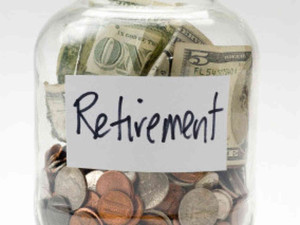“How Investment Advisors Hurt Millennials and How Millennials Hurt Themselves”

As the father of four Millennials, I am angry at the blatant disregard Investment Advisors show towards Millennials. The most egregious disregard is the recent advent of automated investing as a way of catering to the investment wants, not needs, of Millennials. It is clever marketing but it is bad for the Millennial and bad for this country. Anytime, you cater to a want and not a need you should probably be selling a luxury good. But in this case you are selling a necessity. Saving money for retirement is a necessity and when companies cater to a person’s wants instead of their needs they are only serving themselves.
Let me say it clearly. Millennials need to be investing in the stock market and they are not. They are not for a variety of reasons (Article from USA Today) but when they finally turn to investment providers and seek their expertise—they don’t get it. What they get instead is a disingenuous questionnaire that assesses the Millennial’s propensity towards risk and the end result is they get a portfolio that often contains more bonds than stocks. Excuse me? This is malpractice in my opinion. You can’t let a novice investor, an investor that does not know anything about investing answer some silly questions and then “customize” a portfolio for them. What you must do if you really care for them is to educate them and insist that they allocate close to 100% of their money to the stock market.
The case is clear. Own stocks. Let me repeat—-own stocks if you are saving for retirement. It’s the wisdom that has been passed down through the ages and yet somehow, due to clever marketing we want to “cater to your wants” and “customize based on your risk tolerance.” This is a huge mistake. Instead of telling you exactly what older generations were told, which was invest in stocks, learn how they work, it gives you the greatest probability of accumulating a substantial nest egg for retirement, we get “we want to make you happy even if it means you will fail.”
Let me give you an example. If you sign on to the latest entrant in the automated investing world by E-Trade, which they call Adaptive Portfolio, it appears as the greatest solution on the planet. They appear to be looking out for you—but they are not. I don’t want to pick on E-Trade because it doesn’t matter which of the automated providers you choose. They will all steer you in the wrong direction. But for the purpose of this tale, E-Trade it is.
Here’s what happens. They ask you nine questions. The first is what do you need the money for and you answer—retirement. The second is when do you think you will need the retirement money and you answer—way in the future. The third is they ask you how long will you need it when you finally go to take some out and you answer—forever or until I am no longer retired. They then go through a series of six more questions in an attempt to deceive you while appearing to be assisting you. Here’s where it’s good to have someone like me on your side. I spent the better part of half a day answering these six questions with a slight variation on my answer each time. The objective was to come up with their recommended asset allocation based on my answers.
What were the results? Before I reveal the results let me say there were 8000 possible answers to the questions they asked but there were only 4 recommendations regardless of how you answered. They either recommended a “customized” 40% allocation to stocks or a 60% or an 80% or a 99%. Furthermore, regardless of the recommendation, they recommended the same types of asset classes in almost every case. Excuse me—-this is not customization. They are essentially selling you a mutual fund under a different wrapper. I can live with this as a selling technique. What I find reprehensible is that a 22-year old fresh out of college could end up in a 40% stock 60% bond portfolio that will not let them achieve a healthy retirement outcome based on some silly questions.
We know the industry won’t change—so you must change. Do not do business with an automated investment advisor.
Furthermore, if your real life advisor that will speak to you does not have a disproportionate allocation to stocks because you “just can’t handle the risk and fluctuations” find an advisor that will educate you as to why it is in your best interest to learn to handle the ups and downs of stocks. Once you learn that fluctuations or volatility is actually your best friend while you are accumulating capital for retirement, you will be forever grateful that at an early age you invested in stocks. I suggest you read our paper entitled The Trampoline Effect to understand why it is so important to invest aggressively when young.
Don’t fall victim to clever marketing.
Business & Finance Articles on Business 2 Community
(115)








